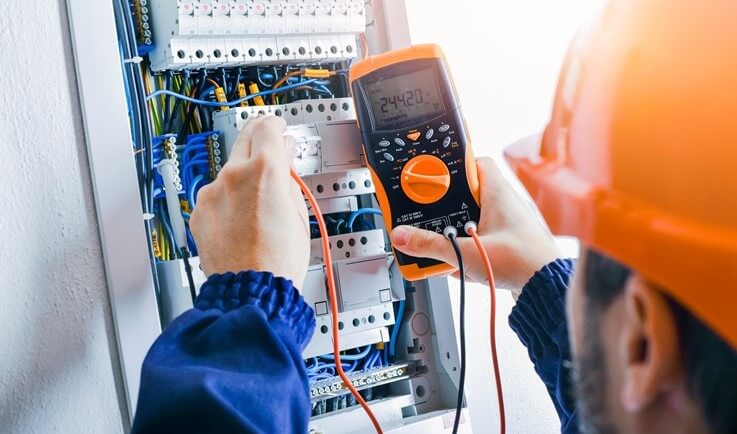
5 Differences Between an Electrical Technician and an Electrician
The terms electrical technician and electrician do sound the same. They both impart the idea that they have something to do with electricity. They both sound almost similar. True that both electricians and electrical technicians are qualified and competent to undertake any electrical project. However, their nature of work is not the same. Their range of duties and field of work differs. If you assign the same task to both professionals, they both will have their own set of difficulties in performing them. In this article, we have discussed the areas of differences between an electrical technician and an electrician. So, if you are planning to provide electrical contractor services professionally, keep in mind that they two are two different careers. Their responsibilities, education, salaries, and competence level; all are different. Let’s see how.
1. Payment and Salaries
Although both professionals deal in electricity there is a visible difference in their salaries. This is based on their expertise and their specialization. An electrical technician’s hourly wage is around $20. The annual earning ranges between $23,000 and $74,000. On the other hand, electricians earn more. The hourly wages of electricians are $25.35 per hour leading to a total of $52,000 annually.
The wages increase significantly if an electrician specializes in solar energy. At times they can earn a whopping sum of $96,000 annually. Another difference in earnings is witnessed in their field of work. Commercial electricians are paid differently than professionals providing residential electrical services.
The difference in earning is also based on the experience of professionals. Just because a professional is an electrician does not mean he can earn more than an electrical technician. Instead, an experienced technician
2. Roles and Job Descriptions
Electrical technicians have a different set of roles, duties, and job descriptions as compared to electricians. Electrical technicians deal with complex machines, their internal schemes, and plans. These professionals mainly deal with the components of electrical devices. They can repair and maintain devices that use electricity.
With their expertise and knowledge to use special equipment, technicians can engineer electrical devices. They can clean, maintain, inspect, and troubleshoot devices to resolve an issue from the root. Being technicians, they can handle complex structures quite efficiently. Whereas, electricians deal with the overall performance of electricity. They make sure that the right quantity of power supply is available, and all the connections are working. Electricians ensure smooth power supply and functional connections in residential or commercial buildings.
3. Training and Qualification
It takes more qualification and training to become a professional technician. To become an electrician, one only needs a high-school diploma. Whereas, to become an expert technician, one needs a professional degree in electrical engineering or a 2-year associate’s degree in electronic technology. To become a technician, one must have proficient knowledge of mathematics, wiring, motors, math, and so on. One can get a professional degree from a school, college, or university.
Electricians can get training with apprenticeship programs held by companies or electrical service providers. However, this is only possible after passing a school exam first. In some states, electricians must take state-held exams after a defined interval of a few years.
4. Job Outlook
Although both professions deal with electricity, there is a huge difference in their outlook. An electrical technician is more of a specialized job, and it deals with complex structures of electrical devices. On the other hand, electricians are general tradesmen who ensure the smooth power and performance of devices. Career growth and earning opportunities for an electrician are more than a technician. This is because their services are required largely by all sectors. Domestic as well as commercial setups need the services of electricians. On the other hand, a technician performs a specialized job. His services are not needed as frequently as the electricians.
5. Field of work
A technician does not have that many opportunities available to him as do the electrician. The electrical technician has much fewer venues for services because he cannot provide residential electrical services frequently. The specialized nature of work prevents a technician to provide independent Electrical contractor services. There are much lesser chances for him to be a successful entrepreneur. An electrician is equally required for commercial buildings, corporate sectors, and residential electrical services.
Final Word
Electrical technicians and electricians, the both, deal with electricity. Some people think of both professions as the same job. However, these are not the same. Whether job opportunity or career growth; whether training or salary; both professionals have their defined boundaries. Their tasks cannot be interchanged. Therefore it is important to know the difference between them so that you don’t end up hiring the wrong person for the job.
For qualified and experienced electrical contractors and residential electrical services, get in touch with Bay Electric eureka.



